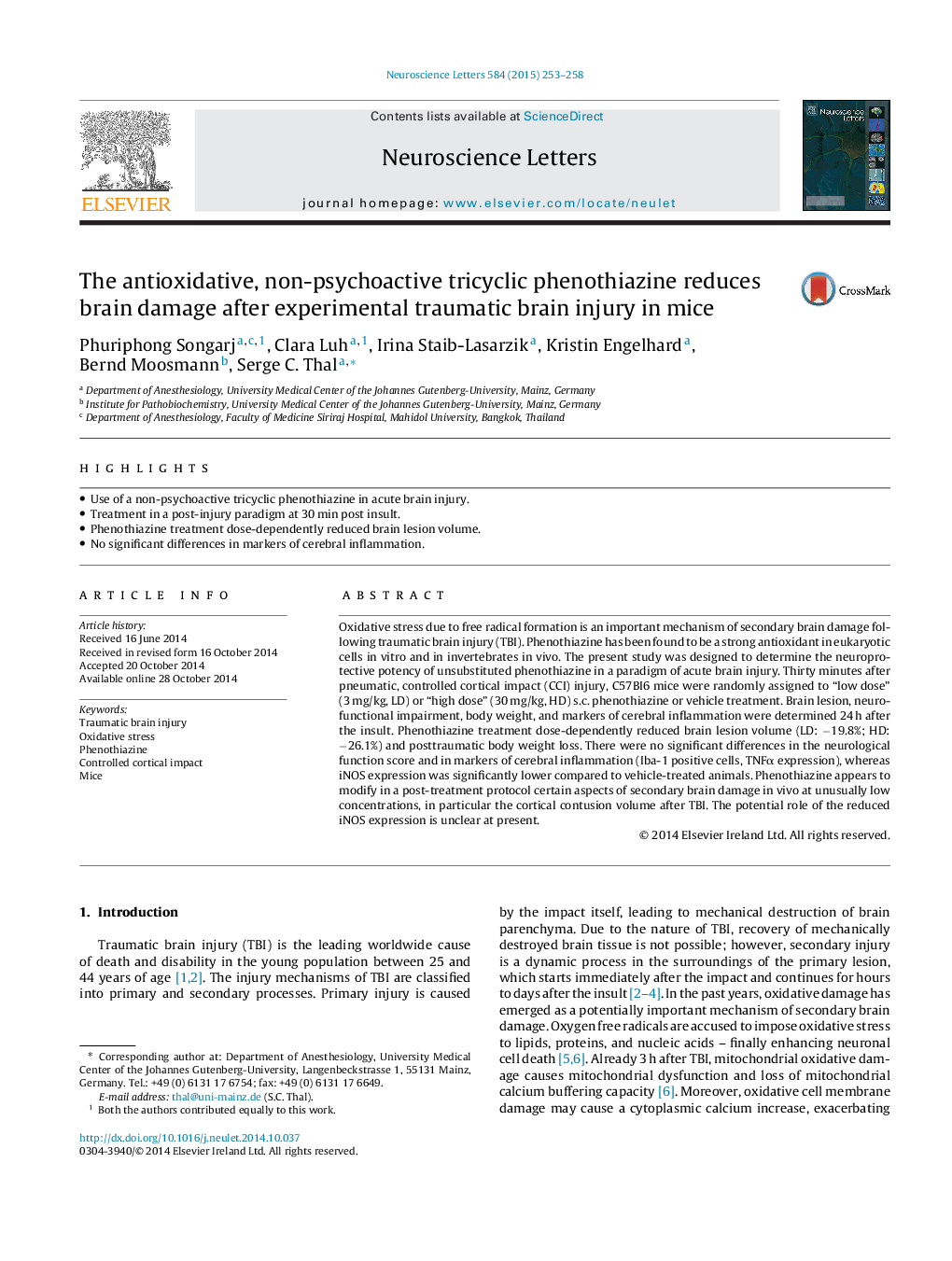| Article ID | Journal | Published Year | Pages | File Type |
|---|---|---|---|---|
| 6281484 | Neuroscience Letters | 2015 | 6 Pages |
Abstract
Oxidative stress due to free radical formation is an important mechanism of secondary brain damage following traumatic brain injury (TBI). Phenothiazine has been found to be a strong antioxidant in eukaryotic cells in vitro and in invertebrates in vivo. The present study was designed to determine the neuroprotective potency of unsubstituted phenothiazine in a paradigm of acute brain injury. Thirty minutes after pneumatic, controlled cortical impact (CCI) injury, C57BI6 mice were randomly assigned to “low dose” (3 mg/kg, LD) or “high dose” (30 mg/kg, HD) s.c. phenothiazine or vehicle treatment. Brain lesion, neurofunctional impairment, body weight, and markers of cerebral inflammation were determined 24 h after the insult. Phenothiazine treatment dose-dependently reduced brain lesion volume (LD: â19.8%; HD: â26.1%) and posttraumatic body weight loss. There were no significant differences in the neurological function score and in markers of cerebral inflammation (Iba-1 positive cells, TNFα expression), whereas iNOS expression was significantly lower compared to vehicle-treated animals. Phenothiazine appears to modify in a post-treatment protocol certain aspects of secondary brain damage in vivo at unusually low concentrations, in particular the cortical contusion volume after TBI. The potential role of the reduced iNOS expression is unclear at present.
Related Topics
Life Sciences
Neuroscience
Neuroscience (General)
Authors
Phuriphong Songarj, Clara Luh, Irina Staib-Lasarzik, Kristin Engelhard, Bernd Moosmann, Serge C. Thal,
